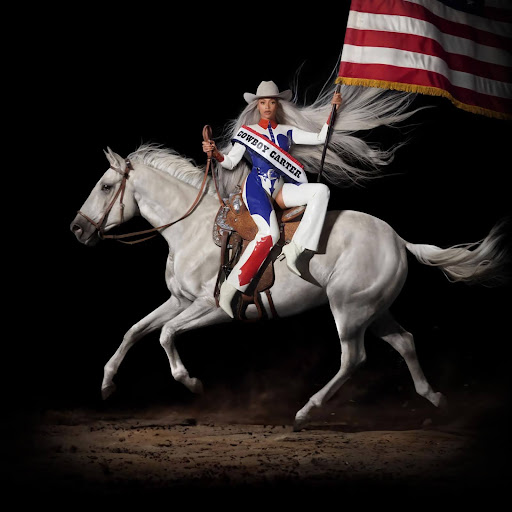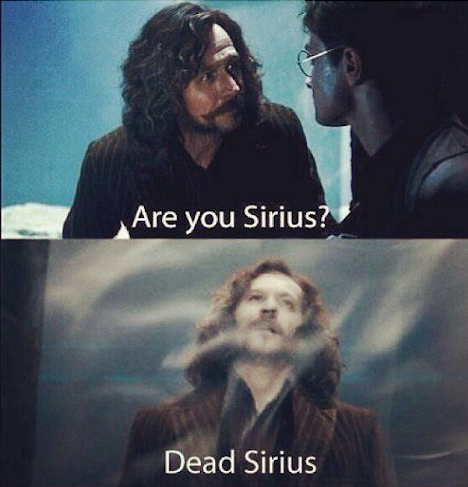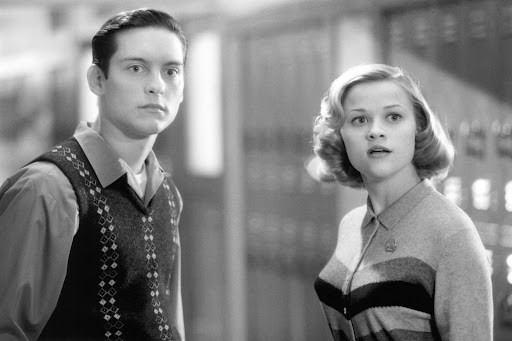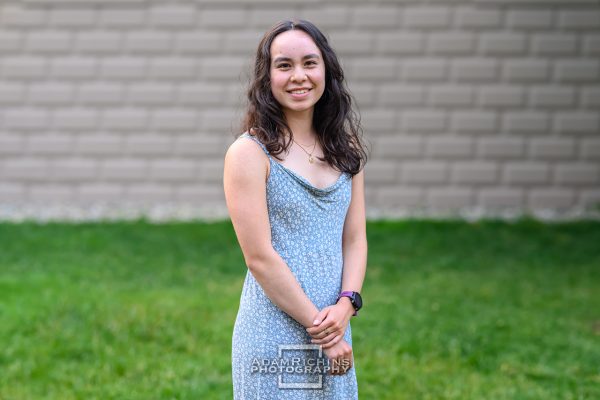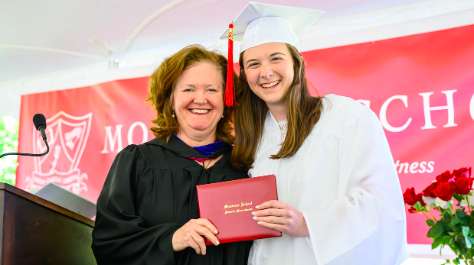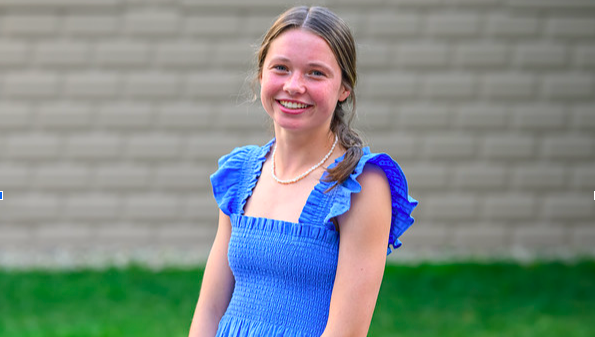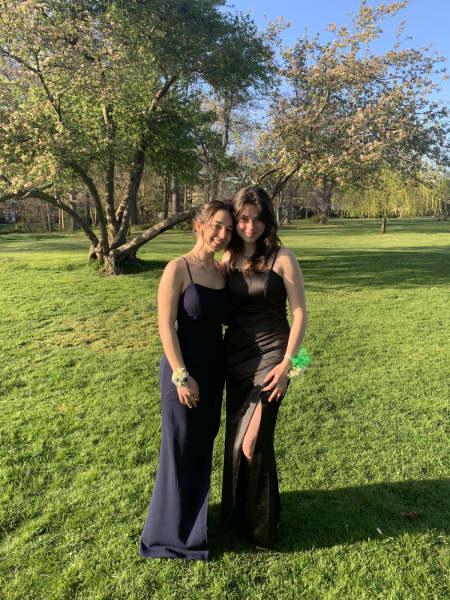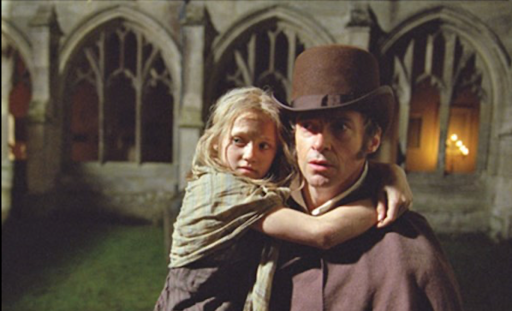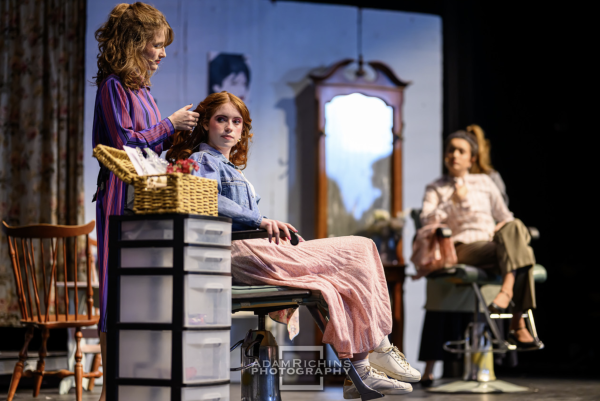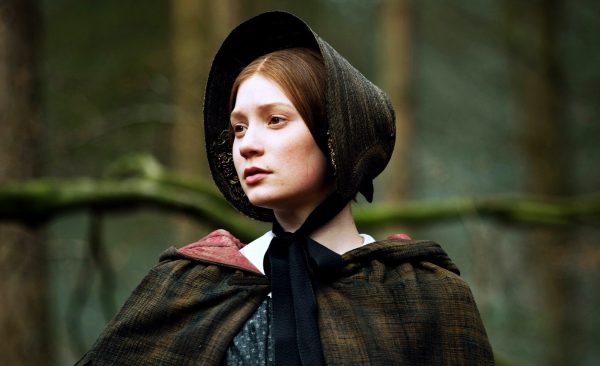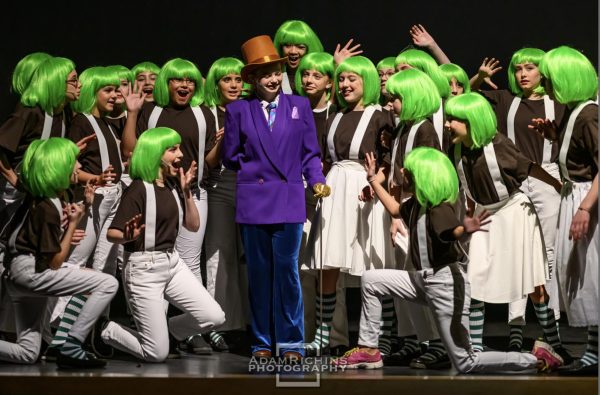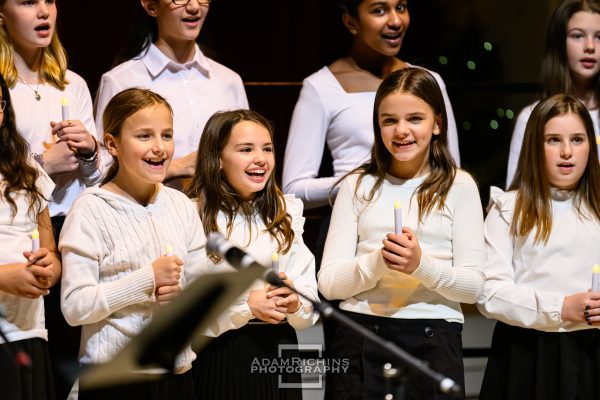All of Our Favorite Romance Tropes, Ranked
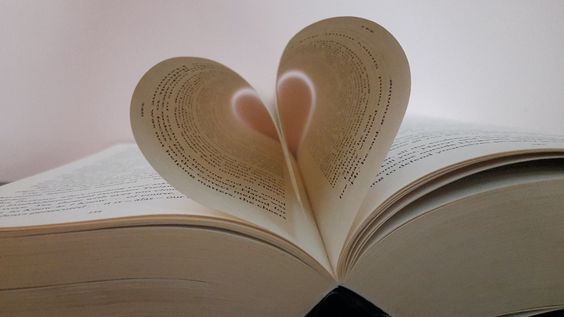
https://i.pinimg.com/564x/aa/ac/c4/aaacc4a1100fd33820044efdf9a02b3c.jpg
What are the best romance tropes? Pappy and Katrina tell all.
As Pappy and I settled into Mrs. Juge’s Theology 11 class, we engaged in a discussion about whether enemies to lovers was the superior romance trope. Shockingly, we found that we were the only ones who disagreed. Friends to lovers is way better than enemies to lovers, and that is an objective truth. This conversation led us to later create a list, ranking our top ten romance tropes.
One: Friends to Lovers: Are you really surprised? The storyline follows a relationship that evolves from platonic feeling to romantic interest. We like this trope because there is a connection already established, but when it grows, they both discover new things about the other that without attraction they would not have known. When asked, Ms. Archbold commented that friends to lovers is not just found in fiction, saying: “Friends to lovers is an accurate representation of what love actually is.” Señora blushed as she emphasized her love of this trope as it relates so closely to her own story: “I feel that if you are really good friends with a man, it has to go to the next level. [with my husband and I,] we were very close friends, and it became something more.”
Two: Oblivious to Love: The chemistry is there. But is it more than a platonic feeling? The protagonists are unsure. But their friends are not. The reader clings on to the ever-nearing possibility of the character’s realization of their feelings. Although waiting for them to be together may be incredibly frustrating to the audience, it makes the recognition of their feelings so much more fulfilling. You may be oblivious to how interesting this trope is, but its crowning glory is what you too will experience: a burst of unexpected emotion.
Three: Enemies to Lovers: While this seems to be a very popular trope, enemies to lovers is not our personal favorite. Although initial hatred does add another dimension to the storyline, we like it sweet but simple. An opinion of someone founded on severe dislike becomes the sole association of them. And even if a shift in perspective occurs, there will always be an underlying sense of unease because trust was never established in the first place. Those feelings of resentment are bound to resurface in minor disagreement or otherwise. Practically, enemies to lovers never works.
Four: Opposites Attract: Our favorite version of opposites attract is Introvert and Extrovert. Their acceptance of the stark difference between them cultivates a balance of strength and weakness and a foundation of trust. They complete each other. Both halves of the relationship have something unique to bring to the table, and so the relationship lacks nothing. In everyone’s favorite show (Pappy has never seen it though), Gilmore Girls, Loreli falls in love with Luke. Their love story gives Grumpy and Sunshine. Luke is the owner of a diner and is sort of rude and quick to anger. It’s safe to say most of us wondered why he was in the customer service business. Loreli, on the other hand, is charismatic and charming, her wit carrying conversation and snarky commentary weirdly making the audience grow fond of her. Their relationship is the perfect example of why opposites attract is a compelling trope. *Side note from Pappy: “Opposites attract as introvert and extrovert is just like really cute, it’s the epitome of love.”
Five: Reunited Love: You’re casually strolling through the wine aisle of the Costco of your hometown, searching for a drink to get you through the holidays with your family. Suddenly, as you reach for the $10.99 bottle of rosé (teachers don’t make much), another hand brushes yours. Of course, he was going for the champagne that rested above the sale rack, but what he was met with was your eyes. There he was, your high school sweetheart, his name beginning with J, the one you left behind to pursue your dream of moving to the big city to teach underprivileged youth. Dying to know more? Luckily, reunited love is the plot of most Hallmark movies, so you have ample opportunity to enjoy its cheesiness. This trope is an easy read and a classic that belongs on everyone’s bookshelf. Although the plot is not complex, it’s a comfort read and makes the middle of the pack of our ranking.
Six: Forbidden Love: This trope is a solid read because the romance is deeply intertwined with the actual plot of the novel. However, sometimes the reason why it is forbidden is not as compelling. For instance, in Romeo and Juliet, their families are against the match because of personal rivalry, but Romeo and Juliet pay no mind. This trope is usually more interesting and relatable if the people themselves are hesitant to fall in love with someone because of their own reasons. That is, the love is forbidden because of a general idea in society — or maybe because they’re best friends and don’t want to ruin the friendship.
Seven: Soulmates: Having a soulmate relates to the idea that there’s someone out there who’s destined to be with you and whose qualities will complement your own. It offers a poetic and romantic view of the world. There is comfort in knowing there is someone out there who is destined to be your perfect match. This way, you find solace in knowing that even if your relationships fail, the one that is meant to be will be.
Eight: Coworkers: It’s like an evolved school crush. In the book Lessons in Chemistry (credit to Mary Connolly ‘24 for getting Katrina to read it), two chemists, Elizabeth Zott and Calvin Evans, work in the same field. However, the 20th century was not kind to women in STEM and sexism was apparent at Hastings, their place of work. A lack of proper supplies leads Elizabeth to steal Calvin’s beakers, resulting at first in annoyance from Calvin. But soon after, they develop feelings for each other. Their common interests help them bond initially and the relationship grows from there. Coworkers make for a strong partnership as they share both work life and home life, and for Elizabeth and Calvin, still had healthy habits outside of work and home, such as rowing.
Nine: Fake Dating: The issue with fake dating is that it is predictable. The plot can only go one way and doesn’t have much room to be complex. In To All the Boys I’ve Loved Before, Lara Jean meets Peter Kavinsky and from the start the reader can tell what’s going to happen. While it’s entertaining to watch the feelings progress from fake to real, the whole time they have been acting like they are dating, so the climax of the relationship at the end is not as good. Fake dating is typically set in a school with a popular boy and less popular girl (or the opposite), and the reaction from the student body is usually repetitive. But, if you are searching for something easy to read and sort of boring, definitely reach for the fake dating book on the shelf.
Ten: Love Triangle: We don’t like Love Triangles because we feel bad for the other person. Also, the reader might empathize more with the love interest who is not chosen and the feeling of unreciprocated affection that they experience, and so are not as on board with the relationship that actually comes to fruition between the other parts of the dilemma. This often makes the book less enjoyable as the reader is constantly imagining how scenarios and plot points could be better if the other character were involved. However, it opens the reader to multiple perspectives and feelings, as the reader gets to know two characters more fully than just one as both are love interests. It also creates conflict and tension not directly related to the main plot.
To wrap up, Katrina and I both agree that friends to lovers is the best romantic trope and love triangles are just not up to par. However, if the book is written well, we can enjoy even our least favorite tropes. So, as we celebrate another Valentine’s Day, we encourage you to cozy up with your favorite book trope or watch an undeniably cliché, but classic, Hallmark Movie. And we hope that our insight has bettered your opinion so that friends to lovers is now your favorite trope too. If not, and if you have a different (wrong?) opinion, please disagree respectfully. We are promoting civic friendship, after all!
Isabela Pap ‘24 and Katrina Landry ‘24, Creative Writing Editor and Staff Writer
24ipap@montroseschool.org & 24klandry@montroseschool.org

